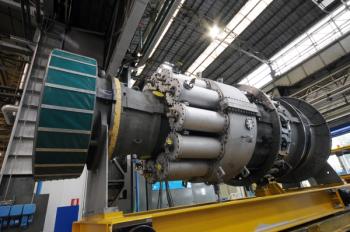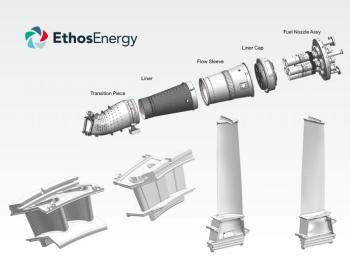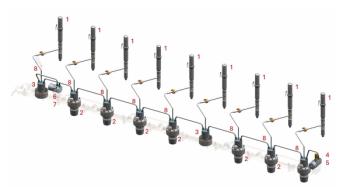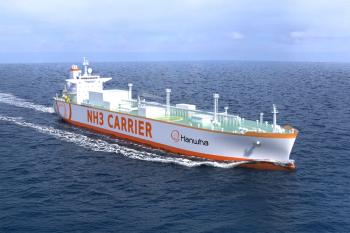
POWERGEN 2024: Updates from STEP Demo sCO2 Project
According to John Marion, Senior Program Director at GTI Energy, sCO2 power cycles have the potential to supersede steam power.
Tuesday morning at POWERGEN 2024, John Marion, Senior Program Director at GTI Energy, hosted a session on Highlighting the STEP Demo Supercritical CO2 Project, a project led by GTI Energy in collaboration with the Southwest Research Institute, GE Vernova, and the U.S. Department of Energy/National Energy Technology Laboratory (U.S. DOE/NETL). The STEP 10 MWe supercritical CO2 (sCO2) Pilot Plant project focused on designing, constructing, commissioning, and testing an integrated and reconfigurable sCO2 test facility.
Marion said sCO2 power cycles have the potential to supersede steam power, which has dominated power generations for the last 100 years.
“They are very efficient, very compact turbomachinery,” he said. “They are scalable, so they're quite efficient at small scale, but can scale up to 1,000 MW. They don't use water, so they don't need a boiler operator, which is necessary by state laws.” This enables remote operation. Plus, they are compatible with low- and zero-carbon technologies.
In terms of applications, the sCO2 power cycle can work with the same types of ubiquitous heat sources that are used for steam power, providing significant market opportunities. It is attractive to the U.S. Department of Energy because of its cost and its energy recovery from simple-cycle turbines, geothermal, small modular nuclear reactors (SMR), etc. There are many applications in thermal energy storage and waste heat recovery from industrial sources.
Two ways it differs from the steam Rankine cycle:
- It has a thermodynamic efficiency benefit with temperatures in excess of 500°C, and the higher the temperature, the bigger the benefit. Typical steam power today is around 600°C, so there's an advantage in most of those kinds of applications, with STEP pushing temperatures up to 715°C.
- Unlike steam plants, sCO2 systems retain efficiency at small scales, giving them an advantage for applications such as waste heat recovery.
The scope of the STEP Pilot Plant project was to design, build, and operate a 10 MWe sCO2 Pilot Plant test facility. The public, DOE-supported project achieved mechanical completion in October 2023, allowing the project to move into system commissioning. The team had first turnover of the turbine in December, and it reached 18,000 rpm during the first hot fire tests conducted last week.
Marion reiterated that sCO2 is versatile and provides a cost-benefit over steam cycles.
Newsletter
Power your knowledge with the latest in turbine technology, engineering advances, and energy solutions—subscribe to Turbomachinery International today.




